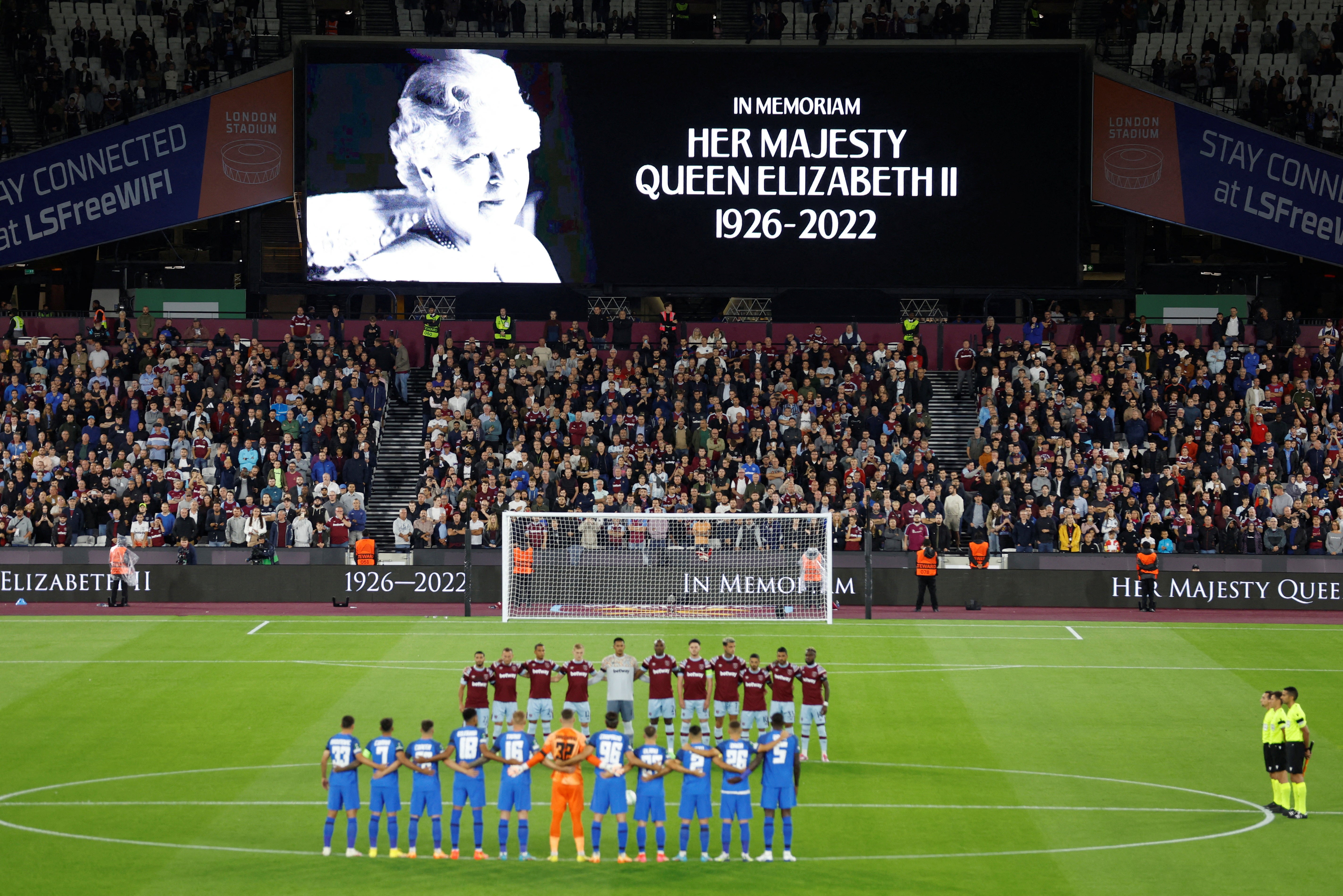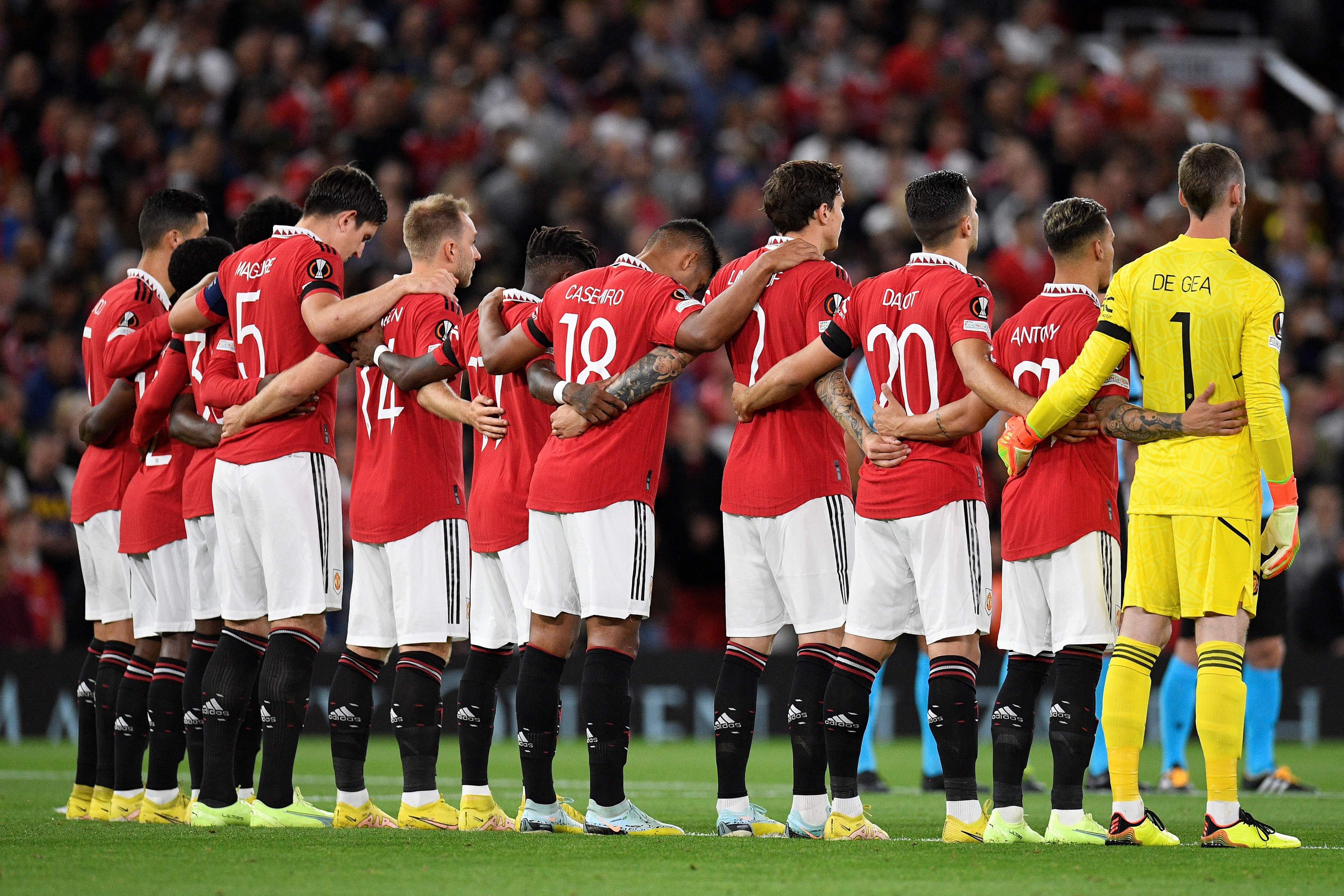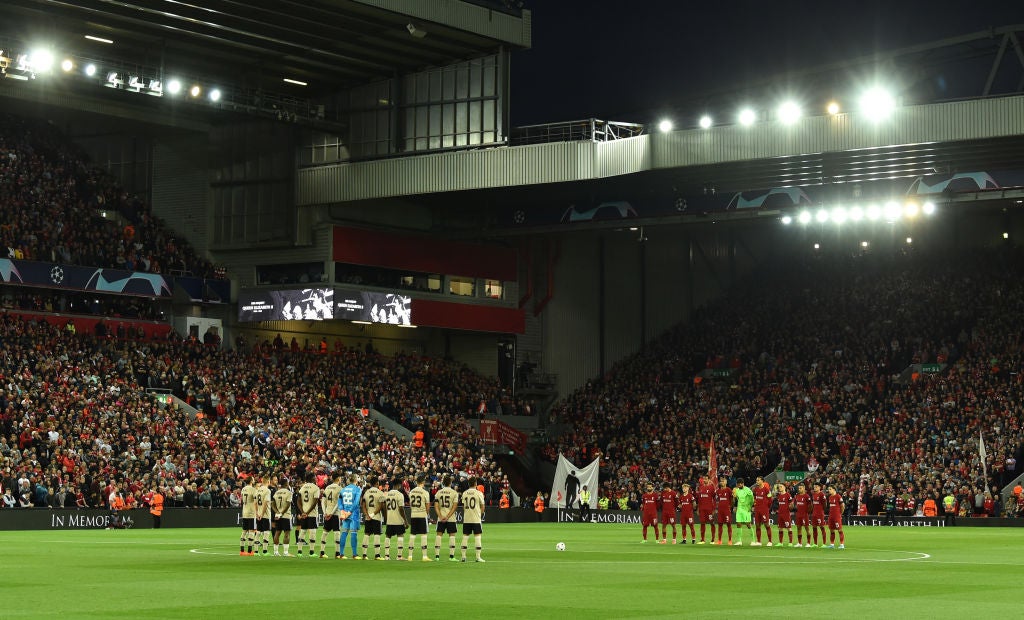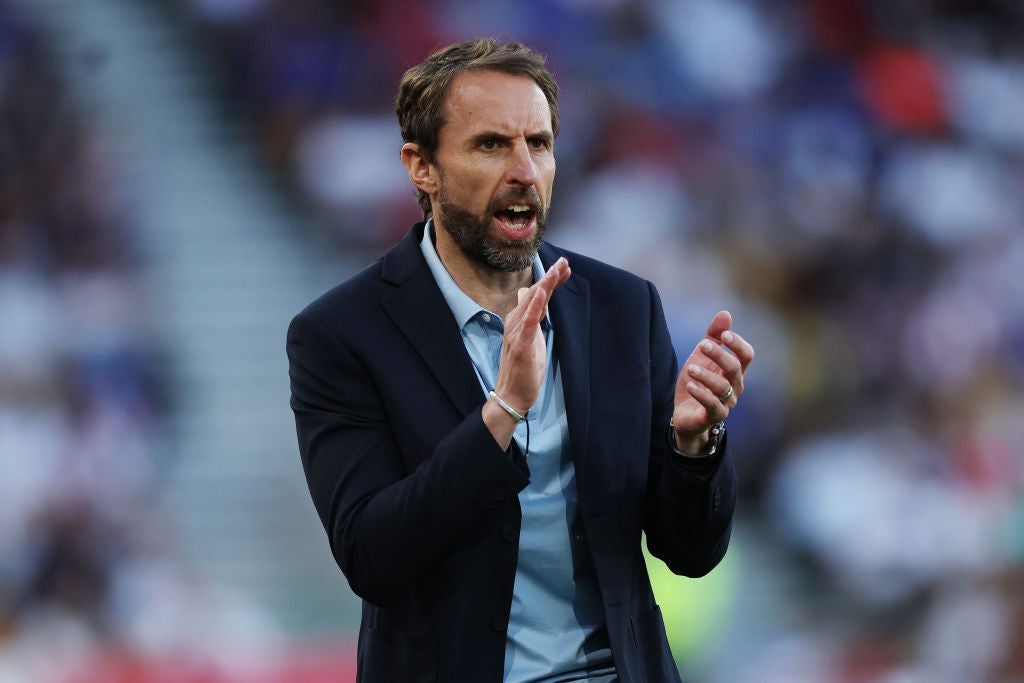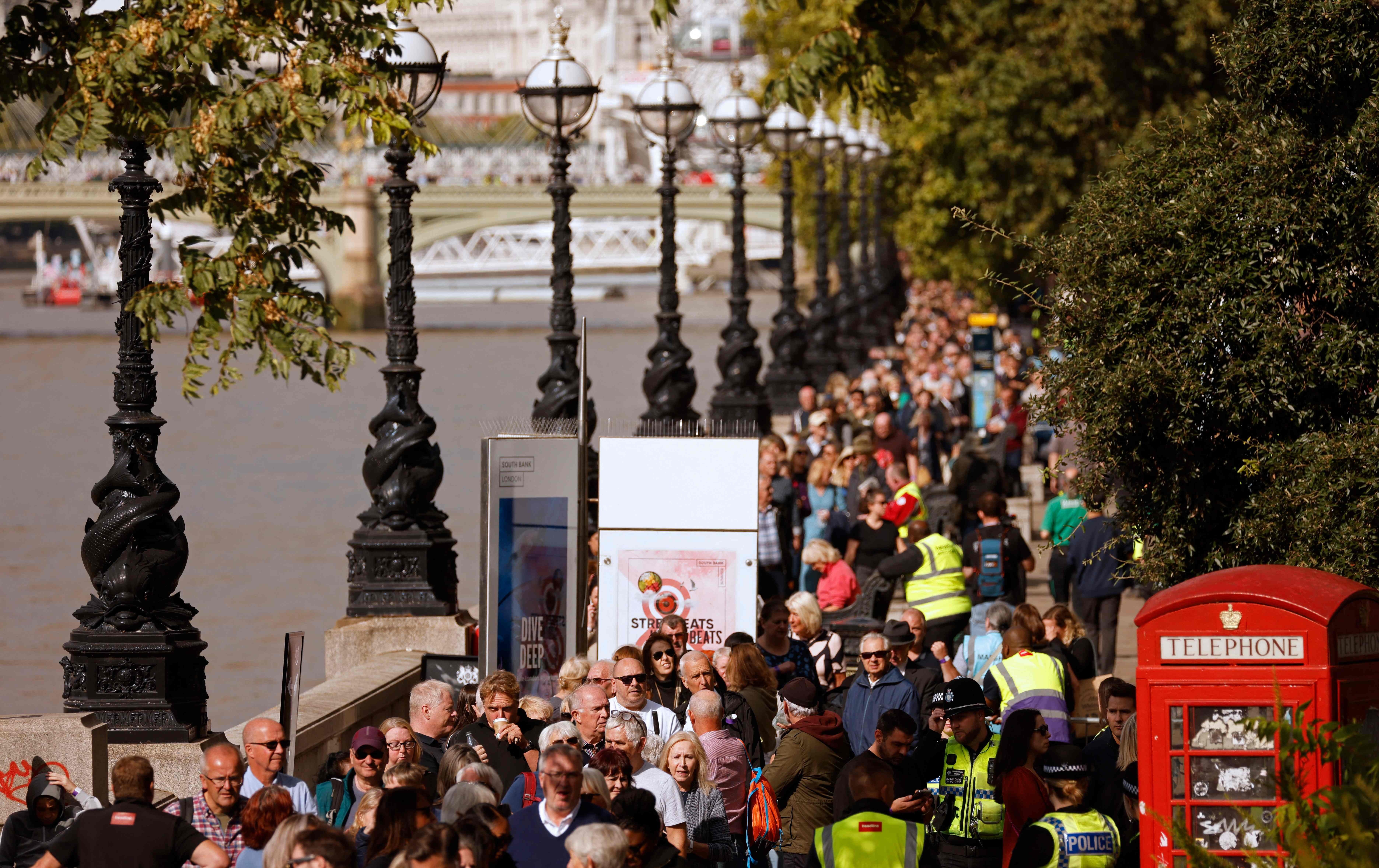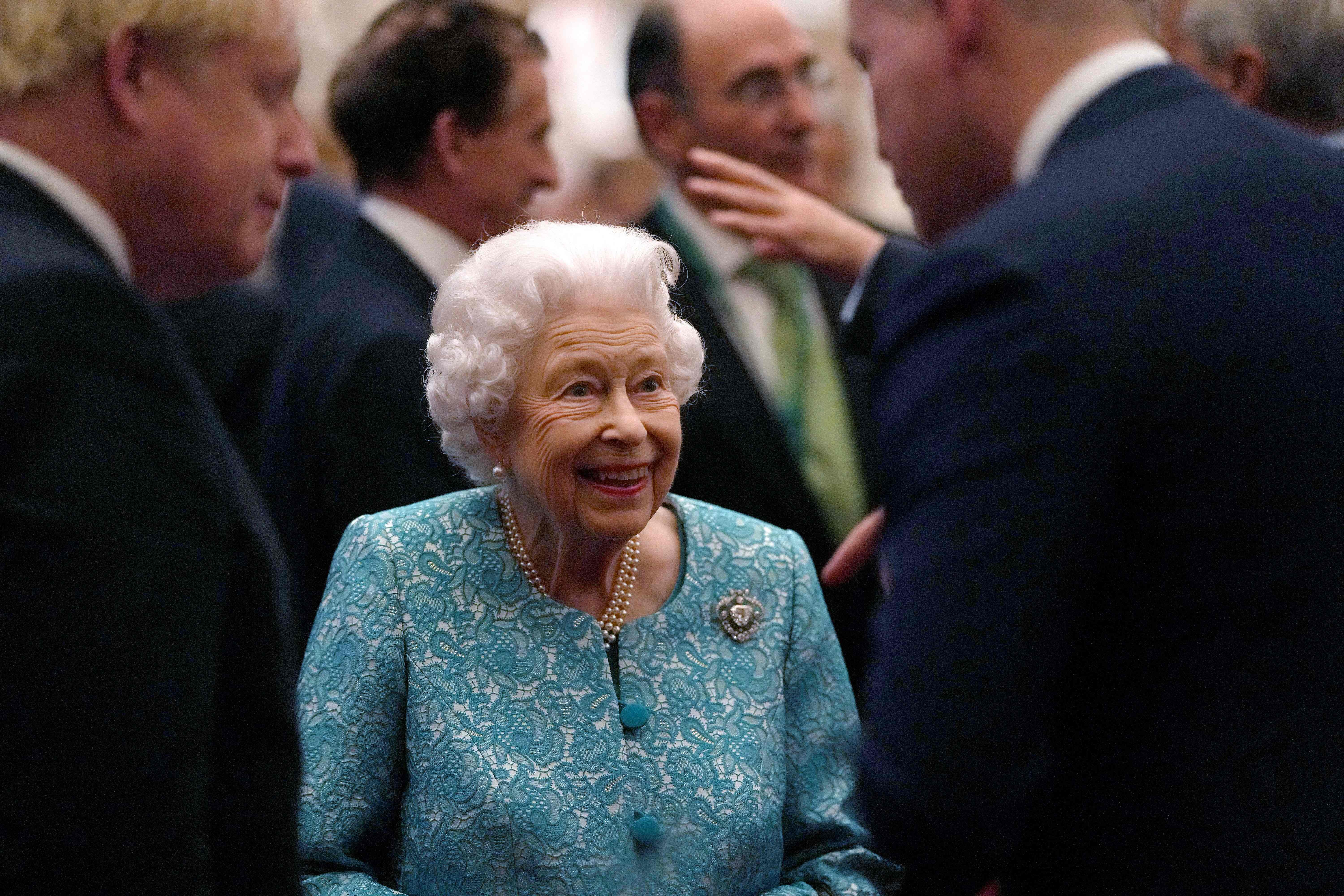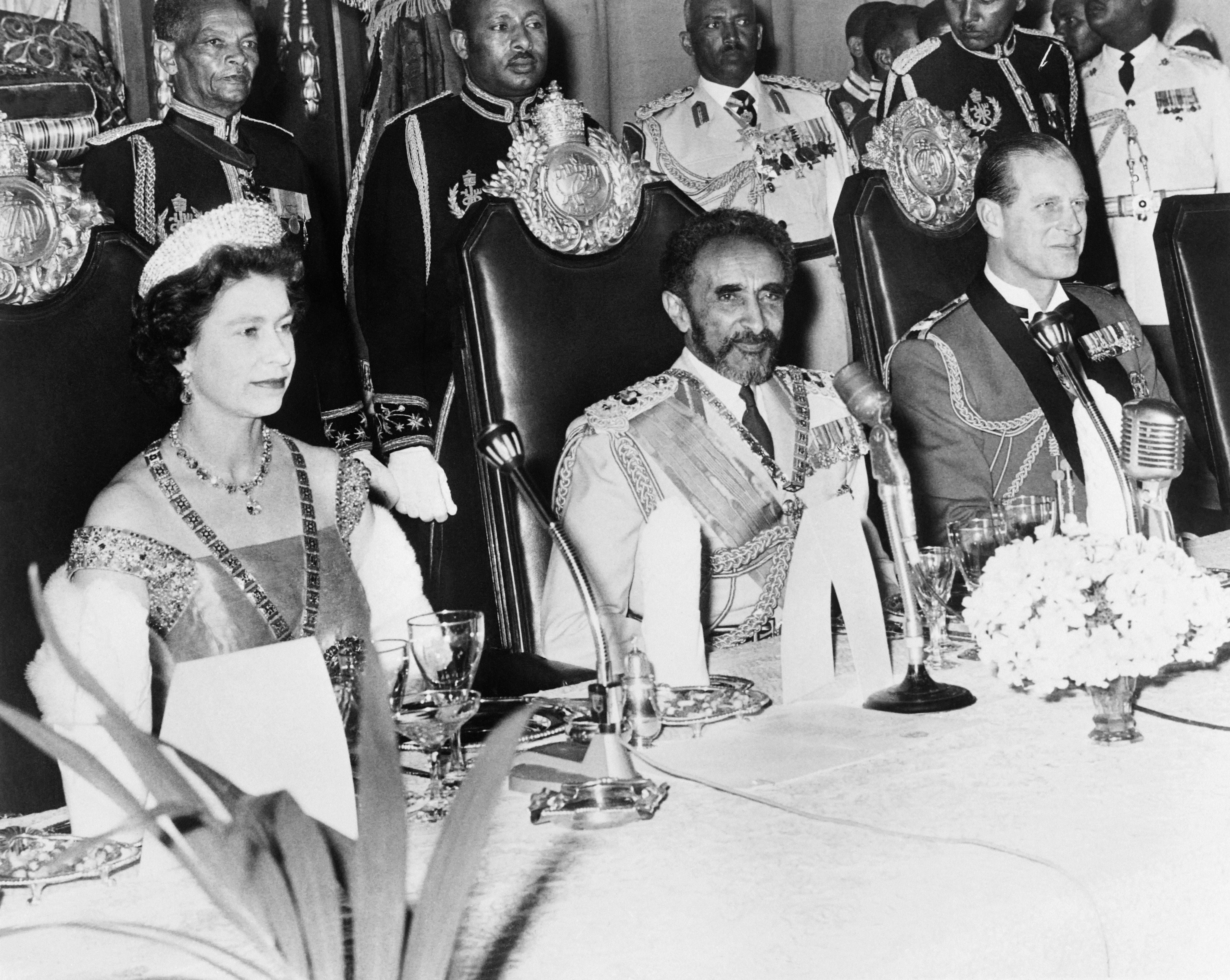‘It’s all about the brand’: How the Premier League tied itself in knots over the Queen’s death
Chelsea held a minute’s silence ahead of their Champions League match on Wednesday – but they will not be in action this weekend
Sign up to Miguel Delaney’s Reading the Game newsletter sent straight to your inbox for free
Sign up to Miguel’s Delaney’s free weekly newsletter
Thanks for signing up to the
Football email
Before the Premier League made its initial decision to postpone last weekend’s fixtures, the board changed their minds four times. It set a tone for the week, but perhaps not of the solemnity that had been intended. There has mostly been confusion, conflicted feelings, and a sense of every decision actually misjudging the timing or the very mindset of the nation. The latter was certainly the case as regards the reaction to the weekend off, where it quickly became apparent the vast majority wanted to play. It’s continued on like that.
When news broke of how the Premier League would be showing respect to the Queen this weekend, one involved source immediately quipped that “it’s a bit much”. Many felt the same.
The Premier League made its announcement two days after the English Football League, but went way beyond its lesser partner. While the EFL have opted for a simple minute’s silence and black armband, the Premier League are also adding a 70th-minute applause with managers encouraged to wear suits and lead out the teams. Some involved have been quipping about how much criticism their bosses would get if they risked wearing a tracksuit.
But then what might be said drives a large part of this story, even as so much of it is about being seen to do.
For all that football has attempted to make the right statement as regards the Queen, the response has instead said an awful lot more about the game’s sense of self and its relationship with the establishment and wider society.
Recommended
There’s been a lot of symbolism, to go with so many images of the departed monarch.
There was first of all that servile manner in which the so-called people’s game felt it had to stop playing, at the same time shutting down an entire economy so many of those same people were dependent on, while all of the establishments sports continued on without a second’s thought. The Premier League effectively cleared space for all other sports and domestic leagues to enjoy a bit of attention. The game, it could be said, knew its place.
Much has been of how football is so wealthy it can weather the losses others can’t, but that isn’t even the half of it. If you were to add up the cost of all the cancellations to everyone affected – from zero-contract workers and supporters crossing Britain on trains to Napoli and PSV Eindhoven fans – the figures would genuinely be frightening. It is the sort of money people just shouldn’t be needlessly losing in a cost-of-living crisis, especially since this is supposed to be an escape.
Some figures involved in the discussions talk of a game that “got lost in its own self-importance”. The guiding consideration for all decisions, according to one source, was “what Tory opinion pages might say”.
“It’s all about the brand,” was the added comment. The Premier League, in effect, became another corporation looking to ensure its messaging was right.
They just completely overlooked the wider sentiment. The Premier League got it badly wrong for one, which did leave some at the competition’s clubs a touch gleeful. “It serves them right,” one source said of the backlash.
That was something they were unprepared for. It was around 24 hours after that initial backlash ignited that word filtered out that a primary consideration was how Liverpool or Celtic fans might respond to any shows of respect or minute’s silences.
That, put bluntly, is preposterous – but not because some people might have booed. It should first of all be stressed that many within Liverpool and Celtic felt this was a “dead cat” argument, an easy deflection after a mistake.
Anfield held a moment’s silence ahead of Liverpool’s match against Ajax
Even if it’s true, though, it’s an absurdity. Consider what it means, beyond the failure of football to trust its own fans. Can the national game really not handle even a few dissenting voices?
Is football really attempting to enforce mourning, or conformity of behaviour, or else you don’t get to play? Should football not be precisely the sort of space that welcomes dissent and supporter expression? That should be implicit to its universality.
Even if supporters want to shout, it should be their own issue to deal with, not the sport’s. Is it the people’s game or the establishment’s?
That’s football as a brand, and needing to be seen to do the right thing, rather than an extension of the support from which it developed.
There was even a hint of this in the comments of the normally judicious Gareth Southgate, when he named his England squad. The press conference for that, it should be noted, was cancelled out of “deep respect”. Simple respect wasn’t enough.
“We recognise the country is still in a period of mourning and my thoughts remain with the Royal Family,” Southgate noted, all too fairly so far. “While it is important to explain some of our decisions around selection, we didn’t feel it appropriate to hold a full press conference, when it might divert attention from where people’s minds should be at this time.”
There’s no really getting away from the fact that “where people’s minds should be” is a pretty loaded phrase in itself. That really sums up the mood of the week.
None of this is to even adopt an anti-monarchist or republican position. The measures the game could have taken were obvious. Since everyone predicted last Thursday that policing issues could see games postponed this weekend, the game could easily have played last week, while offering an appropriate show of respect with black armbands in the way other sports did. There could even have been some additional pageantry to recognise the role of the Queen as president of the FA. That would have allowed a more flexible approach to this weekend, that more people would have understood.
England and Gareth Southgate will pay their tribute ahead of the match against Germany later this month
As it is, football looks like it is reflecting wider society in the wrong way. It has taken too ostentatious an approach to respect, disproportionately disrupting people’s lives, and serving to irritate more supporters than they might have. For football, read the BBC, and all the various quips about their rolling coverage.
It has also had a lot of unintended consequences to go with the more serious real-world cost to so many people.
There’s first of all the chaos to the calendar, already a farce due to a winter World Cup. There’s most of all the fact that six clubs – Brighton, Chelsea, Crystal Palace, Leeds United, Liverpool and Manchester United – will now go a month without playing in their domestic league. Some aren’t too aggrieved with that, mind, given it has almost allowed some managers extended mid-season camps to work on their squads. Graham Potter almost gets a pre-season. Jurgen Klopp gets a reset. Erik ten Hag gets even more time to reshape Manchester United. Brighton have meanwhile been afforded the time and space to appoint a new manager without the pressure of a relentless series of fixtures. All of this could have an effect on those games, too.
Recommended
It has certainly been self-defeating for the Premier League in another sense. On quite a base level, this had been a season that started better than most. It had been breathless, with brilliant games and genuine drama constantly adding to gripping storylines, amplifying it all. It felt like almost every match had something big on it. That has already been disrupted, and there is at least the potential that the Premier League has needlessly taken the momentum out of its own season. It has certainly put more obstacles in place, mostly in the form of fixture congestion.
At the least, the kids get to play again this weekend. Their simple running on some grass represents a welcome release from so much confusion.
Register for free to continue reading
Registration is a free and easy way to support our truly independent journalism
By registering, you will also enjoy limited access to Premium articles, exclusive newsletters, commenting, and virtual events with our leading journalists
{{#verifyErrors}} {{message}} {{/verifyErrors}} {{^verifyErrors}} {{message}} {{/verifyErrors}}
By clicking ‘Create my account’ you confirm that your data has been entered correctly and you have read and agree to our Terms of use, Cookie policy and Privacy notice.
This site is protected by reCAPTCHA and the Google Privacy policy and Terms of service apply.
Already have an account? sign in
By clicking ‘Register’ you confirm that your data has been entered correctly and you have read and agree to our Terms of use, Cookie policy and Privacy notice.
This site is protected by reCAPTCHA and the Google Privacy policy and Terms of service apply.
Register for free to continue reading
Registration is a free and easy way to support our truly independent journalism
By registering, you will also enjoy limited access to Premium articles, exclusive newsletters, commenting, and virtual events with our leading journalists
{{#verifyErrors}} {{message}} {{/verifyErrors}} {{^verifyErrors}} {{message}} {{/verifyErrors}}
By clicking ‘Create my account’ you confirm that your data has been entered correctly and you have read and agree to our Terms of use, Cookie policy and Privacy notice.
This site is protected by reCAPTCHA and the Google Privacy policy and Terms of service apply.
Already have an account? sign in
By clicking ‘Register’ you confirm that your data has been entered correctly and you have read and agree to our Terms of use, Cookie policy and Privacy notice.
This site is protected by reCAPTCHA and the Google Privacy policy and Terms of service apply.
Source: Read Full Article


